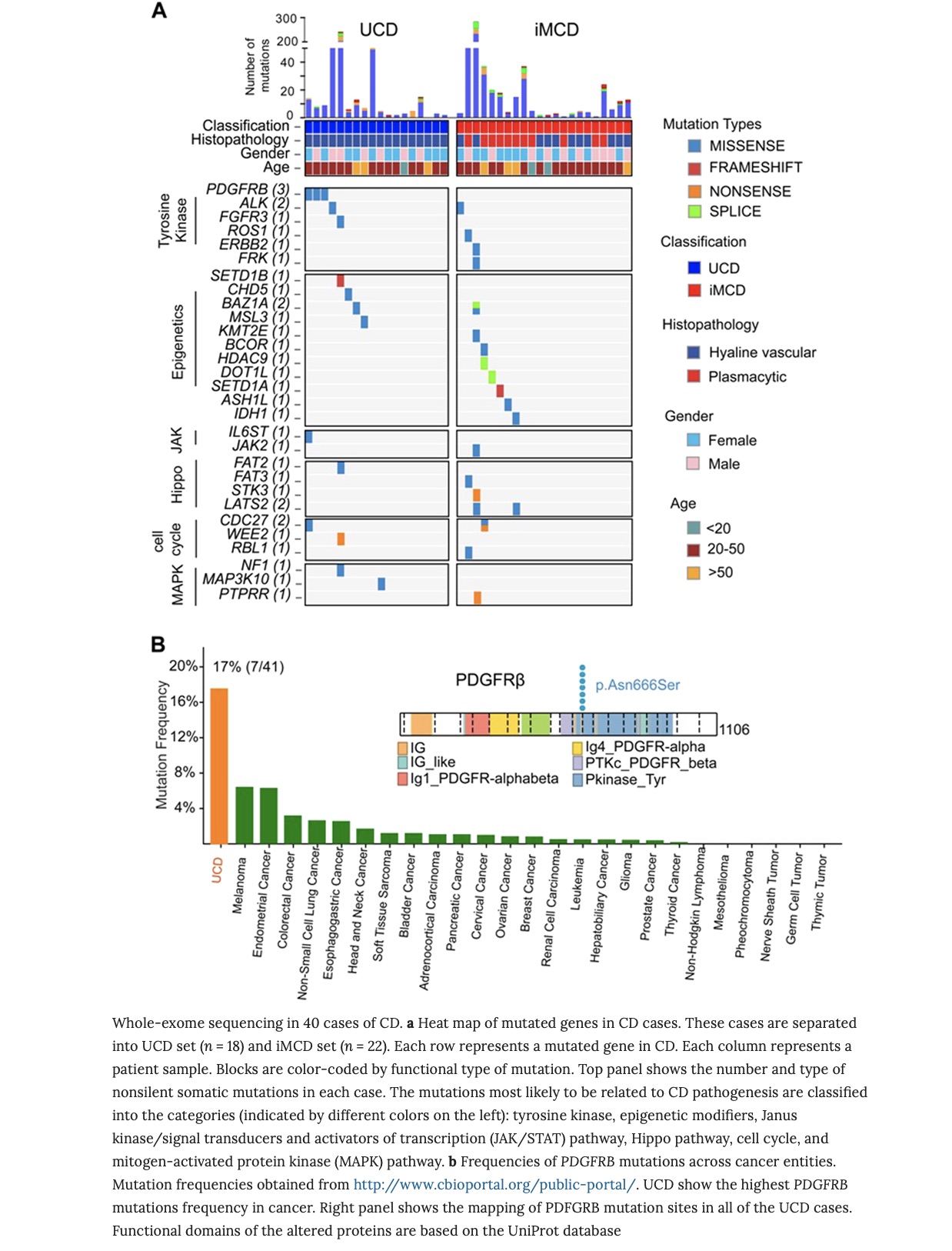Somatic mutation of PDGFRB
 7/17/2019 Recent research from physicians in the CDCN network has uncovered a gene that is mutated in the lymph node cells of some unicentric Castleman disease (UCD) patients! A team of researchers, including Dr. Ken Young, a Professor of Hematopathology at The University of Texas MD Anderson Cancer Center, conducted a research study to evaluate the potential involvement of genetics in unicentric Castleman disease (UCD). This research found that the platelet-derived growth factor receptor beta gene, also known as the PDGFRB gene, was mutated in the lymph node cells of 7 out of the 41 UCD patients in the study. The found mutation is a somatic mutation, which is a mutation that is acquired throughout life and is only present in certain cells. It is not an inherited mutation, which is a mutation present at birth and that is in all cells of the body.
7/17/2019 Recent research from physicians in the CDCN network has uncovered a gene that is mutated in the lymph node cells of some unicentric Castleman disease (UCD) patients! A team of researchers, including Dr. Ken Young, a Professor of Hematopathology at The University of Texas MD Anderson Cancer Center, conducted a research study to evaluate the potential involvement of genetics in unicentric Castleman disease (UCD). This research found that the platelet-derived growth factor receptor beta gene, also known as the PDGFRB gene, was mutated in the lymph node cells of 7 out of the 41 UCD patients in the study. The found mutation is a somatic mutation, which is a mutation that is acquired throughout life and is only present in certain cells. It is not an inherited mutation, which is a mutation present at birth and that is in all cells of the body.
Comparison to cancers
 When compared to different cancers, the PDGFRB mutation is present at a higher proportion in UCD patients, as shown above. Researchers also found that PDGFRB mutations have the potential to change cell behavior in ways consistent with UCD, which supports PDGFRB mutations as possibly playing a critical role in the underlying mechanism of UCD. More research is needed in order to better understand the role of PDGFRB in UCD and what this means for patients. A full-text version of the researchers’ findings can be found here. To support ground-breaking CD research like this, donate to the CDCN today!
When compared to different cancers, the PDGFRB mutation is present at a higher proportion in UCD patients, as shown above. Researchers also found that PDGFRB mutations have the potential to change cell behavior in ways consistent with UCD, which supports PDGFRB mutations as possibly playing a critical role in the underlying mechanism of UCD. More research is needed in order to better understand the role of PDGFRB in UCD and what this means for patients. A full-text version of the researchers’ findings can be found here. To support ground-breaking CD research like this, donate to the CDCN today!
